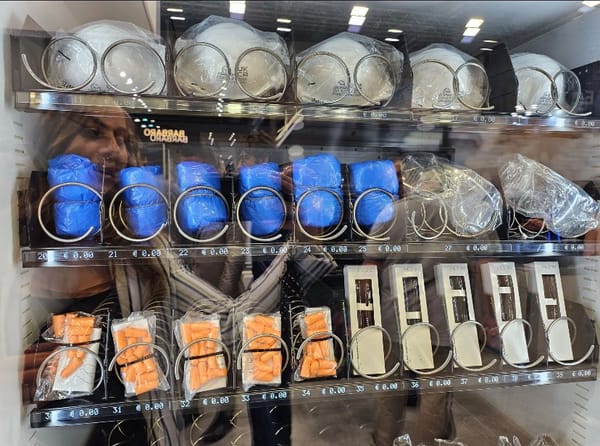Fostering Semiconductor Diversity: The Rise of Balkan Firms

In an era marked by global technological advancements, the semiconductor industry stands at the forefront, underpinning innovations that drive progress across various sectors. However, recent disruptions in the semiconductor supply chain have unveiled vulnerabilities inherent in the current centralized production model, prompting a reevaluation of strategies to ensure resilience and sustainability. Amidst this backdrop, an emerging trend is garnering attention: the diversification of semiconductor production to Balkan firms.
The Balkan region, comprising countries such as Serbia, Croatia, Bulgaria, and others, has historically been recognized for its strategic geopolitical position, rich cultural heritage, and budding entrepreneurial spirit. Now, this region is increasingly becoming a focal point for semiconductor manufacturing, offering a promising alternative to traditional hubs in East Asia and the United States.
The impetus behind this shift towards Balkan firms lies in the need for a more geographically dispersed and resilient semiconductor supply chain. The 2011 earthquake and tsunami in Japan and the ongoing trade tensions between the U.S. and China have highlighted the risks associated with overreliance on a few key players in the semiconductor market. Further, the impact of the recent 2024 Taiwan earthquake on semiconductor supplies is not yet known. Governments and industry leaders are thus seeking to mitigate these risks by fostering diversity and decentralization in semiconductor production.
Government initiatives play a crucial role in driving this transition. For instance, the European Union's Digital Compass strategy, unveiled in 2021, aims to bolster Europe's technological sovereignty by investing in key digital infrastructure, including semiconductor manufacturing. Under this framework, countries in the Balkan region are actively positioning themselves as attractive destinations for semiconductor investment, leveraging their skilled workforce, favorable business environment, and strategic location.
One notable example of this trend is the establishment of semiconductor fabrication facilities by companies like ON Semiconductor in Bulgaria. ON Semiconductor, headquartered in Phoenix, Arizona, is a leading supplier of semiconductor-based solutions, serving a diverse range of industries including automotive, industrial, and consumer electronics. The company's presence in Bulgaria underscores the region's growing importance in global semiconductor manufacturing, with its facility in Plovdiv contributing to the diversification of the company's production capabilities.
Similarly, Infineon Technologies, a German semiconductor manufacturer, has expanded its footprint in the Balkan region with the acquisition of Cypress Semiconductor in 2020. This strategic move not only enhances Infineon's presence in the automotive and industrial sectors but also strengthens the region's position as a hub for semiconductor innovation. With operations in countries like Romania and Croatia, Infineon is tapping into the region's pool of engineering talent while capitalizing on the benefits of local partnerships and supply chain efficiencies.
Beyond individual companies, the Balkan semiconductor ecosystem is also bolstered by collaborative efforts aimed at fostering innovation and knowledge exchange. Organizations like the Southeast European Center for Entrepreneurial Learning (SEECEL) and the Balkan Venture Forum provide platforms for startups and entrepreneurs to access funding, mentorship, and networking opportunities, thereby nurturing a vibrant semiconductor ecosystem in the region.
From a financial perspective, the rise of Balkan firms in the semiconductor industry is reflective of broader trends shaping global markets. Companies like TSMC (Taiwan Semiconductor Manufacturing Company) and Samsung Electronics have long dominated the semiconductor landscape, with their advanced manufacturing processes and extensive R&D investments. However, recent developments such as the chip shortage and geopolitical tensions have highlighted the importance of diversification and localization.
Investors are increasingly recognizing the potential of Balkan firms as viable alternatives to traditional semiconductor giants. Companies like ON Semiconductor and Infineon, with their strategic investments in the region, are poised to capitalize on this growing interest, driving value for shareholders while contributing to regional economic development. Moreover, the emergence of semiconductor-focused investment funds and venture capital firms underscores the perceived long-term growth prospects of the Balkan semiconductor market.
In conclusion, the diversification of semiconductor production to Balkan firms represents a paradigm shift in the global semiconductor industry. As governments, companies, and investors seek to enhance resilience and mitigate supply chain risks, the Balkan region emerges as a compelling destination for semiconductor manufacturing. With supportive government initiatives, strategic investments by leading companies, and a burgeoning ecosystem of innovation, the Balkans are poised to play a pivotal role in shaping the future of semiconductor technology. By fostering collaboration, driving innovation, and capitalizing on emerging opportunities, Balkan firms are set to redefine the semiconductor landscape in the years to come.




